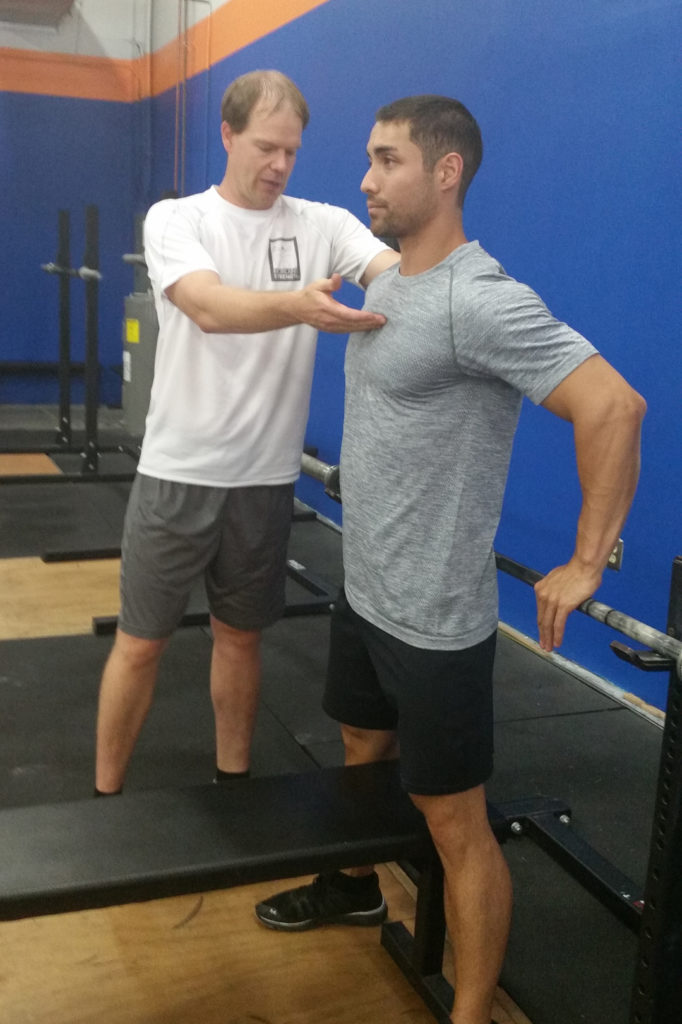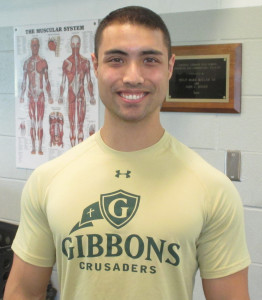Personal training can be very beneficial, especially if you have limited or no experience in a weight room. My name is Sean Cowick and I am a personal trainer (American Council of Exercise), strength and conditioning coach (Leo Totten Training Systems), and body builder. I graduated from East Carolina University with my Bachelor’s in Kinesiology as a Health Fitness Specialist. I will be covering distractions and cueing involved with a personal trainer. When I first graduated I believed I was ready to help people. But I soon learned that practical experience is definitely necessary!
During my post-grad assistantship, I found out that even though I have personally been training for years, it is not easy to train others in the same way. There are a variety of people with needs who require modifications to exercises or specific exercise regimens to reach their goals. That could mean increased cardio, flexibility, strength, agility work, modifications to exercises or exercise restrictions. Before starting with a client it is important to get their background information. If your trainer just jumps straight into a workout without figuring out your health history or experience level, I would recommend changing trainers. My number one objective is injury prevention; without knowing a person’s health history and experience level, I could be putting that person at risk! During my assistantship I had little experience so I made mistakes. What was important was I learned from those mistakes and continued to improve myself, to better serve my clients. That is why I believe before a coach starts personal training anyone they should do an internship/assistant-ship program for at least 3-6 months.
As a personal trainer I have noticed certain distractions that can take place when training someone. If a trainer exhibits any of these signs it could mean they are under qualified, or qualified but lack experience and guidance. There are 5 signs:
- The trainer doesn’t listen when you are in pain.
- The trainer doesn’t provide encouragement
- The trainer is telling you to buy certain supplement products or making diet plans (unless the trainer is a doctor or registered dietician, this should never occur; recommendations ONLY)
- The trainer isn’t paying attention to you
- The trainer lacks knowledge to answer health-related questions
A good way to determine if your trainer is qualified is to receive referrals, watch personal trainers train others, talk to the athletic director, check their credentials or book a trial session with them.

Furthermore, how important is cueing? VERY! Cueing is a word or phrase designed to help you execute a specific movement. If the trainer cannot explain how to deliver a message across to a client, that client can really be injured! For example, if I just told a client to show me a dead lift without demonstrating or delivering the cues, do you believe that person will know how to do it? In my experience no, most times, the client will look at you with lost eyes. If you just demonstrate picking up a weight from a squat position, that is still not good enough. When I ask a client to show me their dead lift, I will demonstrate and gives simple cues. For example, I would say, “When executing a dead lift, approach the bar with feet shoulder width apart, and the bar directly over the tongue of the shoe. Next, keep your back straight, chest up and begin to squat down and grab the bar with your hands just outside your legs. Make sure the shoulders are forward of the bar, lock the elbows, and begin to stand by driving the heels into the ground, while keeping your chest above the hips and back straight. When in the upright position, drop the bar to the ground.” When it is the client’s turn I will reiterate my cues, because it is still new and the information has not fully processed yet. So as you can tell cueing is important, but why? It is to prevent injury and deliver proper form to build a strong and healthy body.
I have three questions I would like you to answer:
-
Do any of the distractions listed above define you?
-
If so, what can you do to become better?
-
Do you believe cueing should be implemented while training?
Did you like the ideas presented in this blog? If so, please add a comment below for Coach Cowick. Our team of bloggers would like to get your feedback. When you submit a comment our goal is to re-post it within 24 hours. Thanks!
Personal Trainer at Fitness Connection and Camp Gladiator
“The views, opinions, and judgments expressed in this message are solely those of the authors and peer reviewers. The contents have been reviewed by a team of contributors but not approved by any other outside entity including the Roman Catholic Diocese of Raleigh.”


